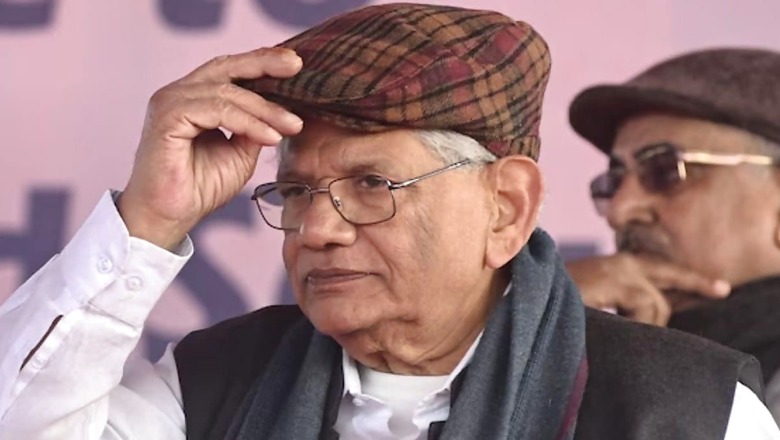
views
Sitaram Yechury, the political leader and former General Secretary of the Communist Party of India (Marxist) breathed his last on September 12. While the whole Indian political fraternity condemns the loss of this veteran politician, not many know that he originally aspired to pursue a doctorate. Born on August 12, 1952, in Chennai, Yechury’s early life was shaped by his education and political activism. Though he passed away, his legacy remains significant in Indian politics.
Yechury spent his childhood in Hyderabad, where he studied at All Saints High School until class 10. Amid the Telangana Movement of 1969, his family relocated to Delhi, where he joined President Estate School. He excelled academically, topping the All India CBSE Class 12 exam. Yechury then enrolled at St. Stephen’s College, Delhi, where he completed his BA (Hons) in Economics, securing the first position in his examinations. He later pursued a master’s degree in Economics at Jawaharlal Nehru University (JNU), where his involvement in politics deepened.
Yechury had hoped to achieve a PhD in Economics but his academic journey was interrupted by political circumstances. In 1975, he joined the Communist Party of India (Marxist) while he was already active in the Students’ Federation of India (SFI). During the Emergency imposed by Indira Gandhi from 1975-77, Yechury was arrested for organizing resistance and spent time in hiding. This led to him abandoning his dream of completing his doctorate.
Despite this setback, Yechury’s political career flourished. After the Emergency, he was elected president of the JNU Students’ Union three times from 1977-78. He rose through the ranks of the CPI(M), being inducted into its Central Committee in 1984 and its Politburo in 1992. He played a crucial role in shaping coalition politics, contributing to the formation of the United Front Government in 1996 and the UPA Government in 2004.
Yechury’s impact on Indian politics is lasting, with his leadership, particularly in the CPI(M), remembered for his ability to build alliances and navigate the challenges of coalition governments. Although he could not fulfil his dream of becoming a doctor, his contributions to Indian society remain influential.




















Comments
0 comment